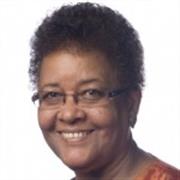Educational Background
BA (History and Government), University of The West Indies, Jamaica (1965)
MA (History), University of Hong Kong (1968)
DipEd, University of The West Indies, Jamaica (1972)
MA (Education), University of The West Indies, Jamaica (1988)
Grad Dip Media, Australian Film, Television and Radio School, Australia (1988)
PhD (Education), University of Queensland, Australia (1995)
Professional Background
Lecturer, Senior Lecturer and Professor of Education, Queensland University of Technology, Australia (1987 – 2012)
Adjunct Professor of Education, Queensland University of Technology, Australia (2013 to the Present)
Senior Lecturer coordinating Social Studies Education, St Joseph’s Teachers’ College, Jamaica, West Indies (1971-1972, 1976-1985)
Head of Department coordinating the teaching of History and Social Studies, Trench Town Comprehensive High School, Jamaica, West Indies (1972 – 1976)
Secondments:
Education adviser to the Government of Grenada and senior lecturer in the National In-Service Teacher Education Program (NISTEP), Grenada Teachers’ College, Grenada, West Indies(1980 -1983)
Team Leader in designing and producing a Social Studies curriculum and materials for New Secondary Schools, Ministry of Education, Jamaica, West Indies (1973-1975).
Affiliations (associations, organizations, institutions)
Australia and New Zealand Comparative and International Education Society (ANZCIES), President (1998 – 1999)
World Council of Comparative and International Education Societies (WCCES), President (2001- 2004)
British Association of International and Comparative Education (BAICE), President (2009 - 2010)
Australian Association for Caribbean Studies (AACS), President (2009-2011)
American Educational Research Association (AERA), Chair of the Postcolonial Education SIG (2012 - 2013)
Comparative and International Education Society (CIES), Board member
Selected Publications
Anne Hickling-Hudson and Erika Hepple (2015) “‘Come in and look around.’ Professional development of student teachers through public pedagogy in a library exhibition.” Australian Journal of Adult Learning, Vol. 55 No. 3, 2015.
Anne Hickling-Hudson (2014) ‘Striving for a Better World. Lessons from Freire in Grenada, Jamaica and Australia’, in International Review of Education, Vol. 60 No. 4, 523-543.
Anne Hickling-Hudson and Robert F. Arnove (2014) ‘Higher Education and International Student Mobility: The Extraordinary Case of Cuba’. In Bernhard Streitwieser (Ed), The Internationalization of Higher Education and Global Mobility, Oxford Studies in Comparative Education. Oxford, UK: Symposium Books, pp. 209-228.
Anne Hickling-Hudson (2013) ‘A Theory of Literacies for Considering the Role of Adult and Community Education in Postcolonial Change’. In R. Arnove, C. Torres and S. Franz (eds.) Comparative Education: the dialectic of the global and the local, 4th Edition, Massachusetts: Rowman and Littlefield, pp. 223 – 246.
Anne Hickling-Hudson and Steven J. Klees (2012) ‘Alternatives to the World Bank’s Strategies for Education and Development’. In The World Bank and Education: Critiques and Alternatives, (Eds.) S. Klees, J. Samoff and N. Stromquist, Rotterdam, Sense Books, 209-226.
Anne Hickling-Hudson (2012) ‘Grenada, Education, Revolution’, In Caribbean
Reasonings. Caribbean Political Activism, Essays in Honour of Richard Hart, (ed.) Rupert Lewis, Kingston: Ian Randle Publishers.
Anne Hickling-Hudson, Jorge Corona González, and Rosemary Preston (2012) (Eds.) The Capacity to Share: A Study of Cuba’s International Cooperation in Education. NY: Palgrave Macmillan, 20 chapters.
Anne Hickling-Hudson (2011) ‘Disrupting Preconceptions: Teaching Education for Social Justice in the Imperial Aftermath’. Compare. Vol. 41, No. 4, July: 453–465.
Hoff, L., and Hickling-Hudson, A. (2011) ‘The role of International Non-Governmental Organisations in promoting adult education for social change: A research agenda’. International Journal of Educational Development, Vol. 31 No. 2, pp. 197-195.
Anne Hickling-Hudson (2010) ‘Curriculum in Postcolonial Contexts’. In ‘Curriculum Development’, (Eds) P.D. Pearson & A. Luke, section of the International Encyclopaedia of Education, 3rd Edition, (Eds) B. McGraw, E. Baker, and P. Peterson, pp. 299-305.
Hickling-Hudson, Anne (2006) ‘Cultural complexity, postcolonial perspectives and educational change: challenges for comparative educators’. International Review of Education Vol 52, Nos.1&2, 2006.
Juliana Mohok McLaughlin and Anne Hickling-Hudson (2005) ‘Beyond Dependency Theory. A Postcolonial Perspective on Educating Papua New Guinea Students in Australian High Schools’. Asia Pacific Journal of Education, Vol. 25 No. 2, pp. 193-208.
Anne Hickling-Hudson (2005) ‘“White”, “Ethnic” and “Indigenous”. Pre-service teachers reflect on discourses of ethnicity in Australia’. Policy Futures in Education Vol. 3 No. 4, pp. 340-359.
Anne Hickling-Hudson (2004) ‘Caribbean “Knowledge Societies”: Dismantling neo-colonial barriers in the age of globalisation’. Compare, Vol. 34 No. 3, pp 293 – 300.
Anne Hickling-Hudson and Roberta Ahlquist (2003) ‘Contesting the curriculum in the schooling of indigenous children in Australia and the USA: from Eurocentrism to culturally powerful pedagogies.’ Comparative Education Review, Vol. 47, No. 1, 2003, pp. 64-89.
Contributed by: Jia Ying Neoh, University of Sydney
Date Contributed: August 16, 2016

